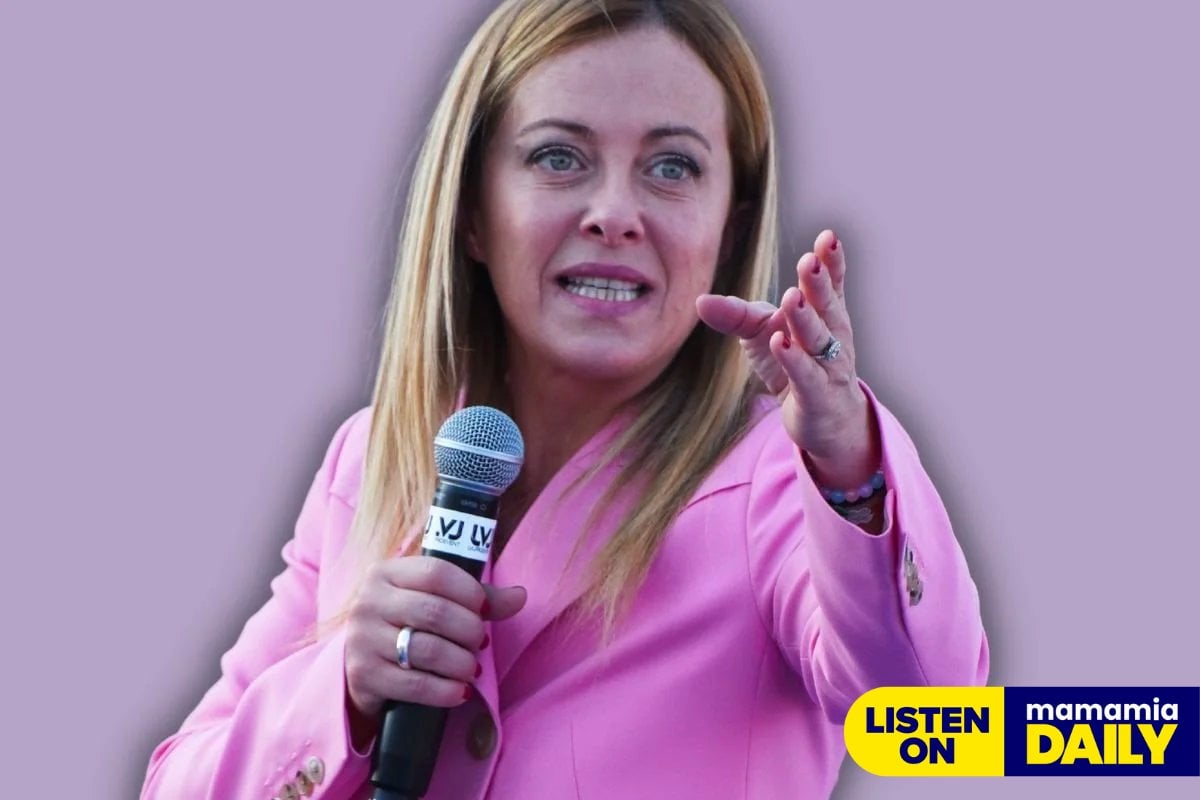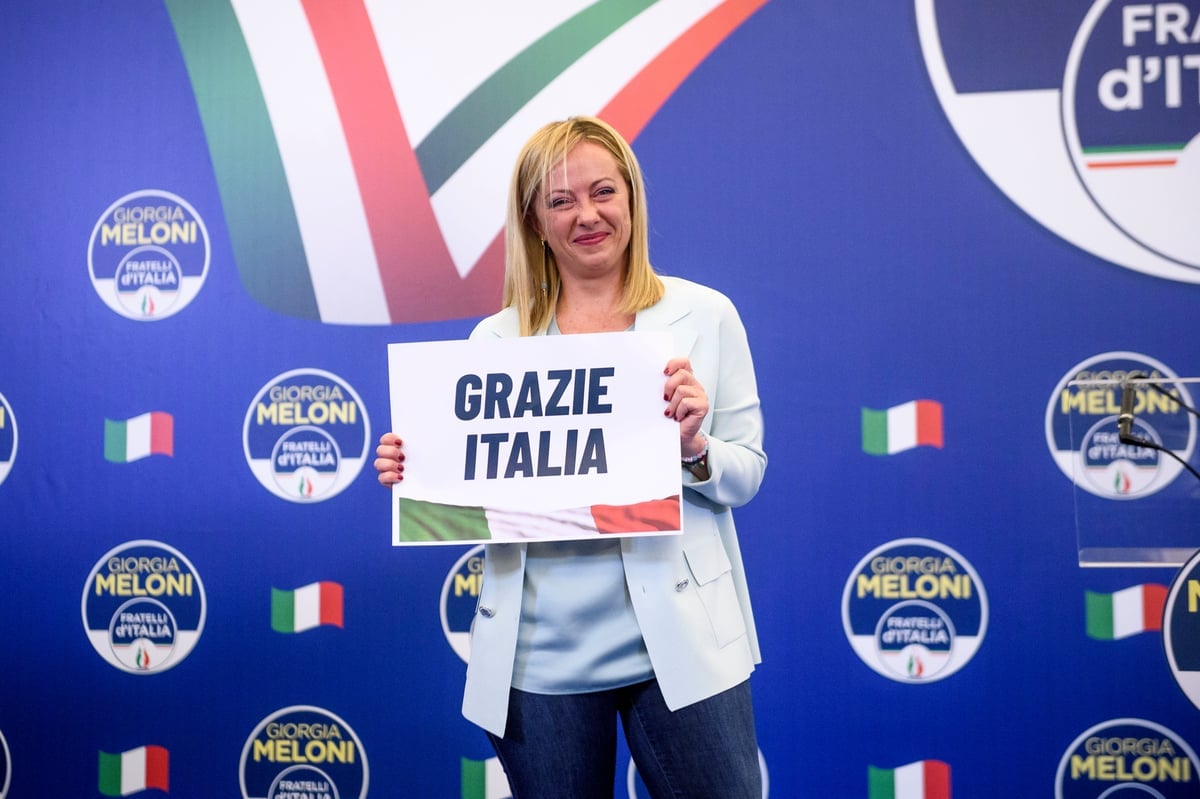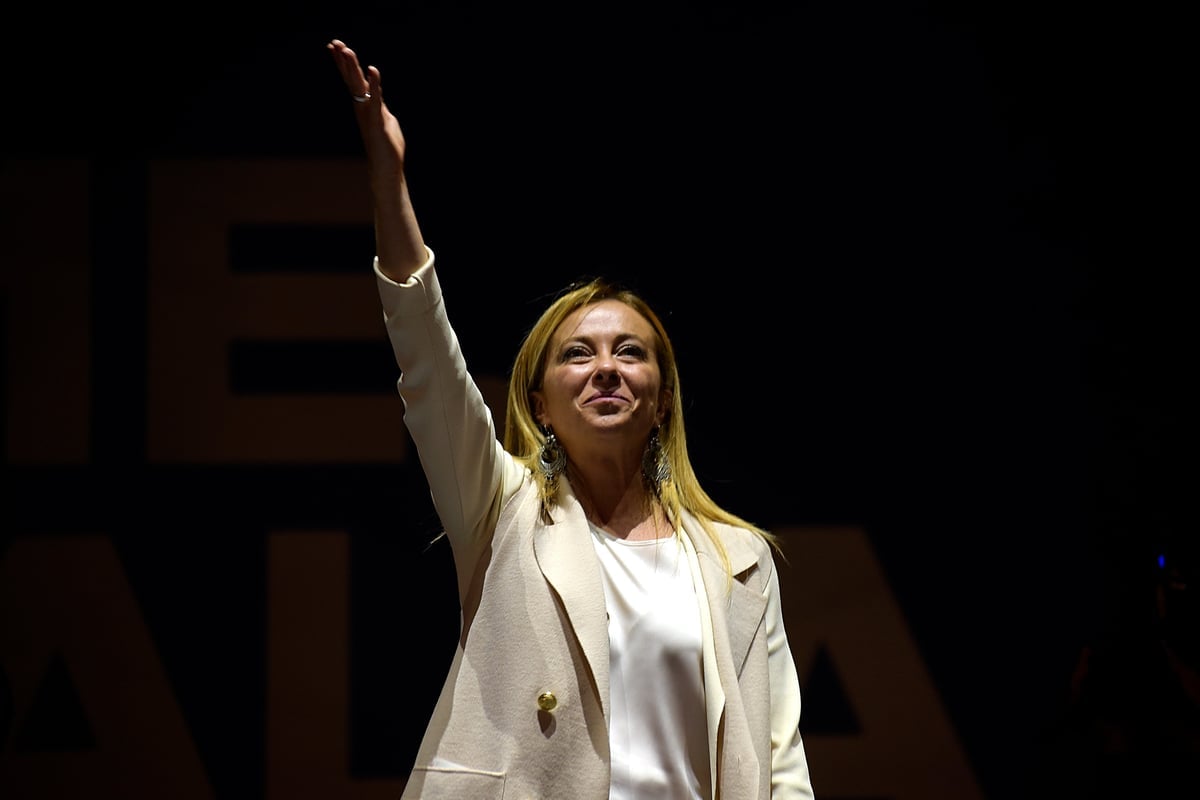
Listen to this story being read by Gemma Bath, here.
When a country appoints a female prime minister in a world still frustratingly dominated by male leaders, it's often reason to celebrate.
In Australia, we've only had one female PM in our history - Julia Gillard - who held office from 2010 to 2013. Unfortunately, it's still novel to have a woman in the highest position of power, which is why it's such a big deal Italy is very likely to have their first female leader in Giorgia Meloni, after her party won Sunday's election.
But of course, after that initial little fist pump for womankind, the reality sets in: Who is this leader? Can we trust her? Is she going to do good things for Italy, Europe and the world?
 This week, Meloni's Brothers of Italy party won the snap Italian election triggered by the resignation of Prime Minister Mario Draghi. Image: Getty/Antonio Masiello.
This week, Meloni's Brothers of Italy party won the snap Italian election triggered by the resignation of Prime Minister Mario Draghi. Image: Getty/Antonio Masiello.


Top Comments